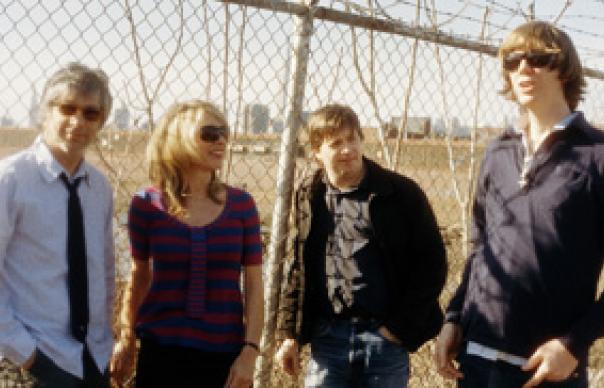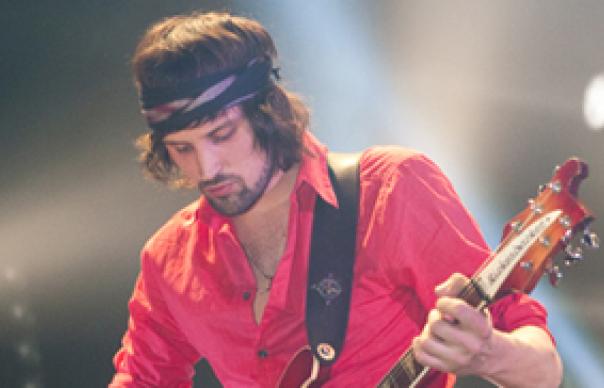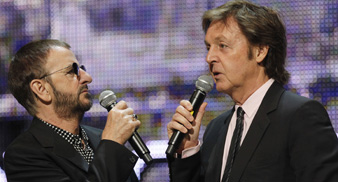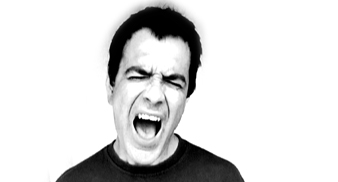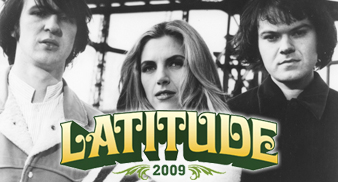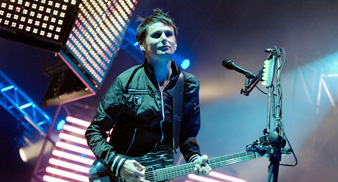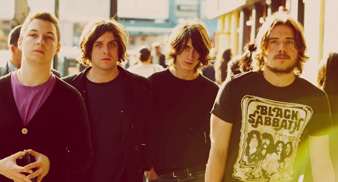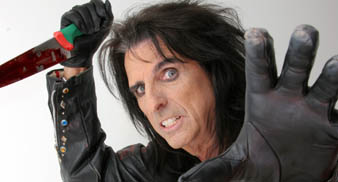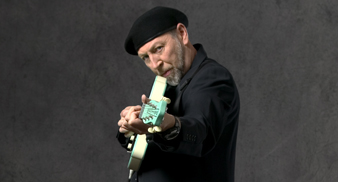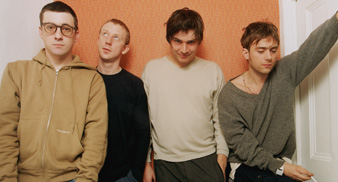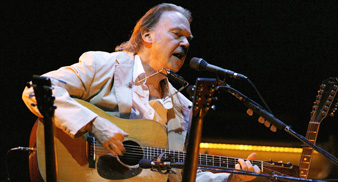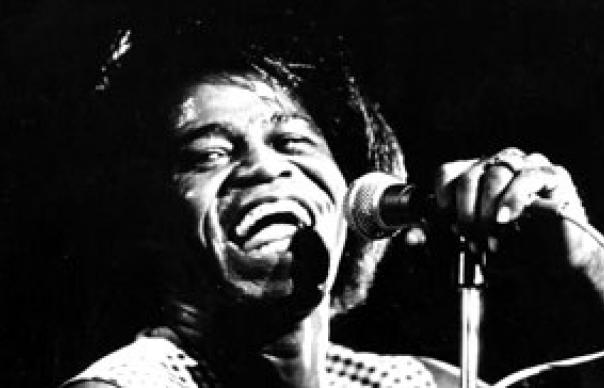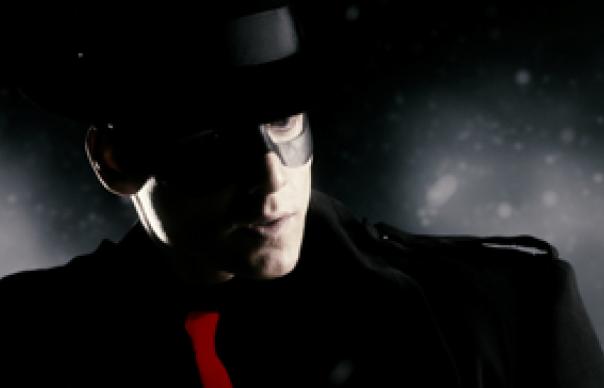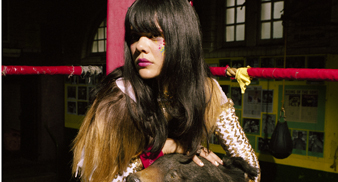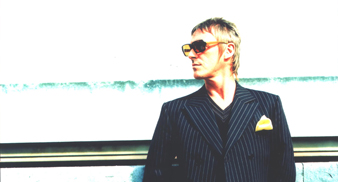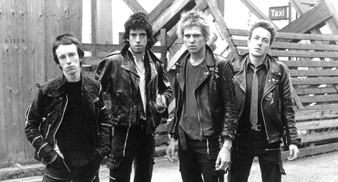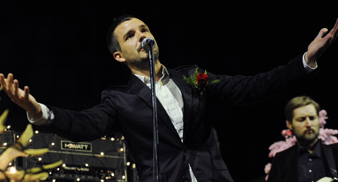A four-disc collection, spanning forty years of Richard Thompson‘s work is to be released on August 10.
Starting in 1968 and bringing us up to the present, Walking On A Wire begins with Fairport Convention and ends with material from his twenty year solo career via collaborations with Linda Thompson.
The 71-track collection has been personally chosen and produced by Thompson and will come with a 60 page book.
The full track listing for Walking On A Wire: Richard Thompson (1968-2009) is as follows:
Disc One:
1. Time Will Show The Wiser – Fairport Convention (Fairport Convention)
2. Meet On The Ledge – Fairport Convention (What We Did On Our Holidays)
3. Genesis Hall – Fairport Convention (Unhalfbricking)
4. Crazy Man Michael – Fairport Convention (Liege & Lief)
5. Sloth – Fairport Convention (Full House)
6. Roll Over Vaughn Williams (Starring As Henry The Human Fly)
7. The Poor Ditching Boy (Starring As Henry The Human Fly)
8. The Angels Took My Racehorse Away (Starring As Henry The Human Fly)
9. The Great Valerio – Richard & Linda Thompson (I Want To See The Bright Lights Tonight)
10. When I Get To The Border – Richard & Linda Thompson (I Want To See
The Bright Lights Tonight)
11. Withered And Died – Richard & Linda Thompson (I Want To See The Bright Lights Tonight)
12. I Want To See The Bright Lights Tonight – Richard & Linda Thompson (I Want To See The Bright Lights Tonight)
13. Down Where The Drunkards Roll – Richard & Linda Thompson (I Want To See The Bright Lights Tonight)
14. The Calvary Cross – Richard & Linda Thompson (I Want To See The Bright Lights Tonight)
15. I’ll Regret It All In The Morning – Richard & Linda Thompson (Hokey Pokey)
16. Old Man Inside A Young Man – Richard & Linda Thompson (Hokey Pokey)
17. For Shame Of Doing Wrong – Richard & Linda Thompson (Pour Down Like Silver)
18. Night Comes In – Richard & Linda Thompson (Pour Down Like Silver)
Disc Two:
1. Dimming Of The Day/Dargai – Richard & Linda Thompson (Pour Down Like Silver)
2. A Heart Needs A Home – Richard & Linda Thompson
3. Don’t Let A Thief Steal Into Your Heart – Richard & Linda Thompson (First Light)
4. Strange Affair – Richard & Linda Thompson (First Light)
5. Sunnyvista – Richard & Linda Thompson (Sunnyvista)
6. Sisters – Richard & Linda Thompson (Sunnyvista)
7. Rockin’ In Rhythm Strict (Tempo!)
8. Did She Jump Or Was She Pushed – Richard & Linda Thompson (Shoot Out The Lights)
9. Man In Need – Richard & Linda Thompson (Shoot Out The Lights)
10. Shoot Out The Lights – Richard & Linda Thompson (Shoot Out The Lights)
11. Wall Of Death – Richard & Linda Thompson (Shoot Out The Lights)
12. Walking On A Wire – Richard & Linda Thompson (Shoot Out The Lights)
13. Tear Stained Letter (Hand Of Kindness)
14. How I Wanted To (Hand Of Kindness)
15. Hand Of Kindness (Hand Of Kindness)
16. Beat The Retreat (Live) Small Town Romance (Live/Solo In New York, 1982)
17. I Ain’t Going To Drag My Feet No More (Across A Crowded Room)
Disc Three:
1. Little Blue Number (Across A Crowded Room)
2. She Twists The Knife Again (Across A Crowded Room)
3. Valerie (Daring Adventures)
4. Turning Of The Tide (Amnesia)
5. I Still Dream (Amnesia)
6. Waltzing’s For Dreamers (Amnesia)
7. Read About Love (Rumor And Sigh)
8. I Feel So Good (Rumor And Sigh)
9. I Misunderstood (Rumor And Sigh)
10. 1952 Vincent Black Lightning (Rumor And Sigh)
11. Put Your Trust In Me Sweet Talker (Original Soundtrack)
12. From Galway To Graceland (Live) Watching The Dark
13. I Can’t Wake Up To Save My Life (Mirror Blue)
14. MGB-GT (Mirror Blue)
15. Mingus Eyes (Mirror Blue)
16. Beeswing (Mirror Blue)
17. Taking My Business Elsewhere (Mirror Blue)
18. King Of Bohemia (Mirror Blue)
19. Don’t Roll Those Bloodshot Eyes At Me (Live) – Richard Thompson with Danny Thompson Live
At Crawley 1993 – Richard Thompson with Danny Thompson
20. Razor Dance (Voltage Enhanced)
Disc Four:
1. Hide It Away (Voltage Enhanced)
2. Last Shift – Richard Thompson & Danny Thompson Industry
3. Big Chimney – Richard Thompson & Danny Thompson Industry
4. Lotteryland – Richard Thompson & Danny Thompson Industry
5. Persuasion (Live) – Richard Thompson Celtschmerz (Live UK ’98)
6. Cooksferry Queen (Mock Tudor)
7. Bathsheba Smiles (Mock Tudor)
8. Hard On Me (Live) Semi-Detached (Mock Tudor)
9. Gethsemane (The Old Kit Bag)
10. A Love You Can’t Survive (The Old Kit Bag)
11. A Legal Matter (Live) 1000 Years Of Popular Music
12. Main Title From Grizzly Man Grizzly Man (Original Soundtrack)
13. Al Bowlly’s In Heaven (Live) Live From Austin TX
14. I’ll Never Give It Up (Sweet Warrior)
15. Dad’s Gonna Kill Me (Sweet Warrior)
16. She Sang Angels To Rest (Sweet Warrior)
For more music and film news click here
You can also now follow Uncut on Twitter! For news alerts, to find out what we’re playing on the stereo and more, join us here @uncutmagazine


